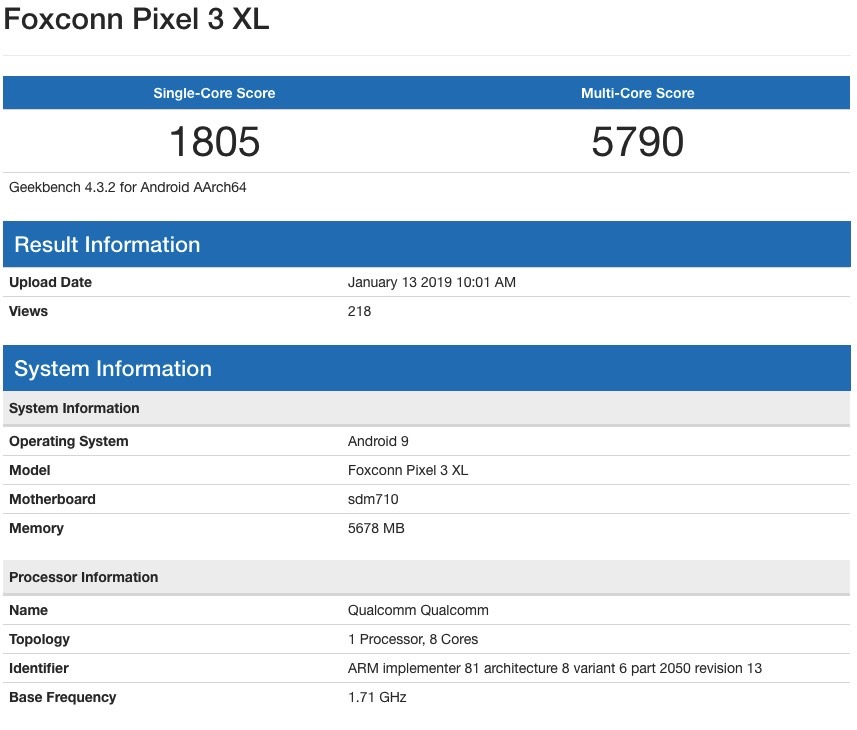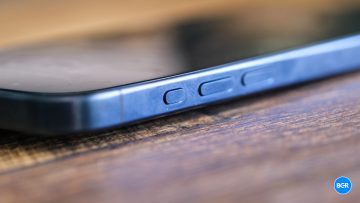The Pixel 3 phones that Google launched back in October have the same components as most other 2018 Android flagships. But the Pixel 3 and Pixel 3 XL were no match for the latest iPhones in speed tests, and Google even had to fix a severe RAM issue via a software update. With that in mind, you shouldn’t expect a better performance from the Lite versions of Google’s newest Pixels, and we have a leaked benchmark to prove it.
We first heard about the Pixel 3 Lite and Pixel 3 Lite XL a few months ago, and Google appears to still be testing the new phones. A phone labeled “Foxconn Pixel 3 XL” over on Geekbench scored 1805 and 5790 in single- and multi-core tests, respectively. The listing also reveals the phone runs Android 9.0 out of the box and packs a Snapdragon 710 processor and 6GB of RAM. These obviously don’t line up with the specs for the Pixel 3 XL:

But Google isn’t copying Apple’s iPhone XR strategy for the Lite series. The iPhone XR has the same chip as the more expensive iPhone XS models, which means it’s just as fast. Comparatively, the Pixel 3 Lite phones will get mid-range Qualcomm chips that aren’t as fast as the Snapdragon 845.
The Pixel 3 XL scored 7684 points in multi-core Geekbench 4 tests back in October, a performance that was inferior to devices rocking the same chip, including the Galaxy Note 9 (8876) and OnePlus 6 (9088). The 2018 iPhones, meanwhile, all scored over 11300 points in the same test. In other words, the Pixel 3 XL Lite will not even match the Pixel 3 when it comes to speed, let alone reach the iPhone.
It’s unclear when Google will launch the Pixel 3 Lite series, but the test above was performed over the weekend. As for prices, we have no idea how much the Lite phones will cost. The Pixel 3 phones may be almost as expensive as their rivals, but Google offered buyers plenty of promos before, during, and after Black Friday to make them more affordable. With that in mind, we’d expect the Lite models to be a lot cheaper than the regular models when and if they hit stores. Again, Google has yet to acknowledge the existence of these devices.







